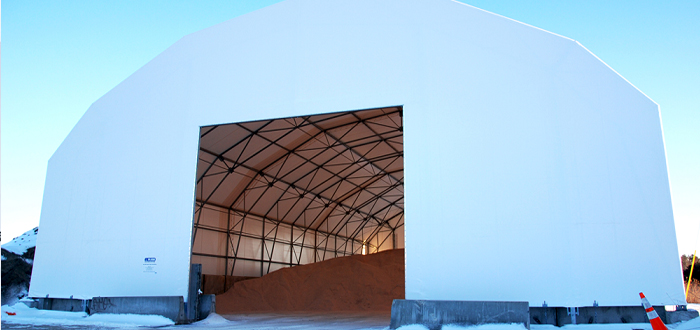-
Nutrivend selects Forterro’s Orderwise to support online expansion and streamline operations - April 11, 2025
-
ARROWXL LAUNCHES AMBITIOUS ZERO WASTE ROADMAP - April 8, 2025
-
THE BCMPA’S NEW CAMPAIGN DRIVES OUTSOURCING SUCCESS IN Q1 - April 7, 2025
-
BLACKOUT TECHNOLOGIES TARGETS TELEMATICS-INTEGRATED MOBILE DEVICE BLOCKING TO COMBAT SMARTPHONE DISTRACTION - April 1, 2025
-
Sparck Technologies awarded Royal designation - March 27, 2025
-
OpenADR Alliance announces first OpenADR 3.0 certified products with EVoke Systems, E.ON Energy and Universal Devices - March 25, 2025
-
Growing fulfilment and contract packer appoints new Managing Director - March 25, 2025
-
When is it time to invest in a WMS? Understanding the key trigger points - March 25, 2025
-
eCapital helps Vantage Recruitment on its journey to financial success - March 24, 2025
-
Hugo Beck Celebrates 70 Years of Packaging Innovation with Open House Events - March 20, 2025
Local councils drive to increase salt warehouse capacities ahead of winter.
Every October, the Winter Weather Survey is conducted by the Local Government Association to gather information about local councils’ preparations for the coming winter. This never fails to give a fascinating insight into our local authorities’ salt storage strategies.
The October 2018 survey revealed that 15% of authorities planned to have more salt in stock for the winter than previous years. 69% of those councils wanted to increase their resilience, and 31% wanted to reduce the need to restock further into the winter. As a result, councils ordered 1.4 million tonnes of salt ahead of the gritting season; 200,000 more than the stock prepared for the previous year. This makes 2018’s the largest stockpile of salt since national records began. As councils work towards meeting our infrastructure’s ever-increasing needs, Rubb ensures this by providing world-class salt storage facilities, proven to last for over 40 years with minimal to no long-term maintenance.
While some local authorities looked to expand, 79% did not plan to increase their salt stockpiles in 2018, with 48% stating that they are at their storage capacity’s limit. As our weather becomes more and more unpredictable, it can be difficult to plan ahead with confidence. But when the nation was caught off guard by 2017’s ‘Beast from the East’, it demonstrated that local authorities cannot be complacent when it comes to salt stockpiling.
Preparedness cannot be emphasised enough when considering the national toll a severe winter can have. 2010’s Whitehall-commissioned Winter Resilience Review found that the economic and social cost of winter weather disruption was around £1 billion.
The 2010 review also strongly encouraged councils to share resources. 2018’s survey echoed this, reporting that 76% of respondents were planning to share resources, with 55% of those intending to share salt. Warehouse storage space is important now more than ever if councils are meaning to hold more than their required levels. Rubb offers custom solutions for this with our expertly designed storage facilities. As with all of Rubb’s modular structures, they are easy to extend or relocate to support growing needs.
The price of salt is between £30 and £40 per tonne, so with upwards of a million tonnes being ordered per year it is paramount that this investment is protected. The key to keeping all this salt usable is guaranteeing that it is held under waterproof covers and fully protected from rain. In these ideal conditions it can be kept for several years, if not longer. If a salt pile is left in the open, however, it may only last a couple months. It will gradually become soaked through its exposure to the elements and will reach the point where the gritter can’t even spread it consistently. For such a vital resource, the best protection is necessary. Rubb structures are better engineered and built to hold up in environmental and corrosive conditions that often result in the failure of other inadequate structures. This is primarily achieved by the structure’s steel framework being hot dip galvanised in post production, to eliminate any chance of corrosion.
With our ever-growing infrastructure and increasingly unpredictable weather, local authorities are moving to ensure that they can effectively respond to whatever winter brings. An essential part of guaranteeing this is establishing salt warehouse facilities that can be relied upon, in which Rubb is a proud industry leader.
https://www.rubbuk.com/rubb-market-sectors/salt-storage-barns/
































